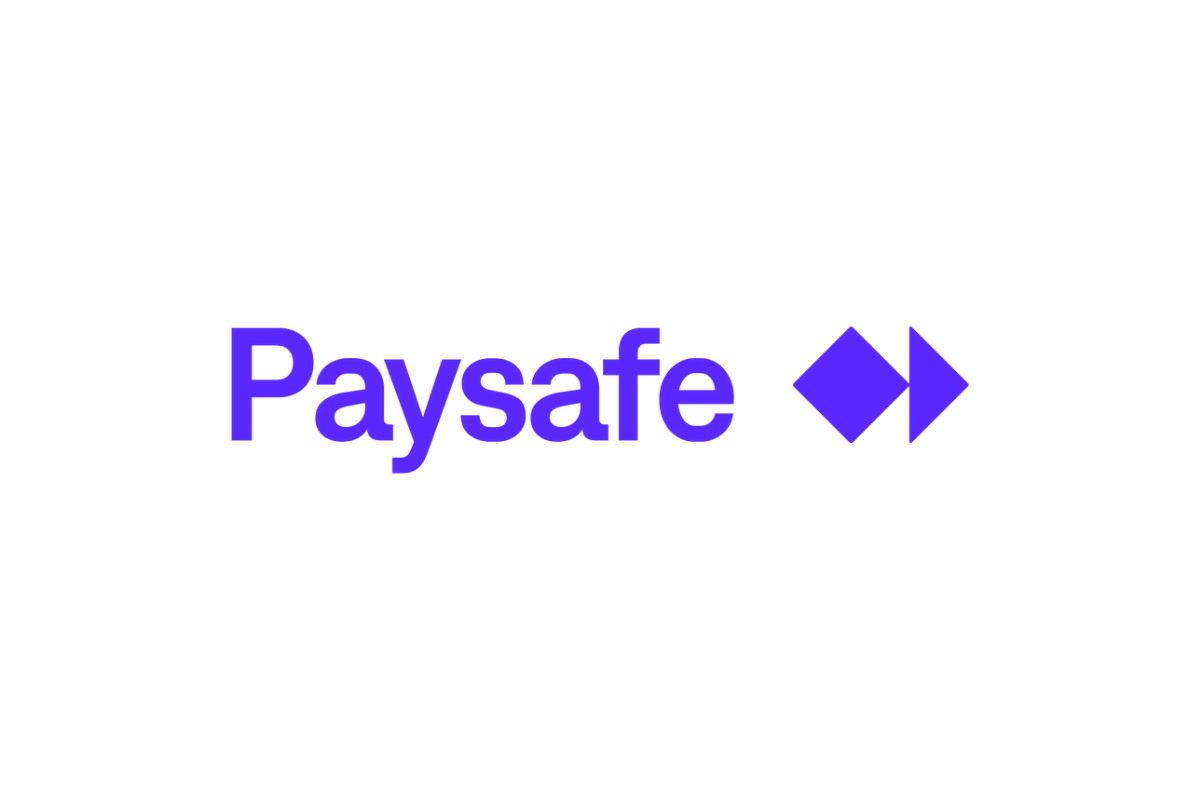Latest News
Latest Online Betting Trends: Insights from SOFTSWISS

In its first report, the SOFTSWISS Sportsbook has compiled unique insights based on a detailed study of user behaviour in the first half of 2021. The information in the report reflects aggregated anonymous results across all brands powered by the Sportsbook Platform.
The SOFTSWISS Sportsbook, launched in December 2020, has gathered quite a few useful and interesting insights, which it is now ready to share. To find more detailed stats visit a special section on the SOFTSWISS website.
TOP DEVICES BY BET SUM AND BET COUNT
Although the use of mobile phones in online gambling has been increasing in recent years, by a huge margin among all devices used for fixed-odds betting, desktops dominate. Their share is three times that of mobile devices. However, the statistics change dramatically when it comes to the number of bets placed. In this case, users favour mobile devices, which lead with 77.16% compared to desktops (22.64%). It is typical for desktop users to place larger bets, but less often. In turn, betting from mobile devices is more frequent, but smaller.
Alexander Kamenetskyi, Product Owner at SOFTSWISS Sportsbook, comments: “Our clients’ big players trust desktops more. One reason is the convenience of getting information, as well as the greater trust in this format of interaction when large sums are involved. On the other hand, the greater bet count made via mobile devices is due to the accelerating pace of life. The mobile phone allows us to stay up to date regardless of time or place. This is reflected in the statistics. We see this trend and understand that mobile devices are the future. So one of our main objectives for the years to come is to make sure that the share of bets placed across mobile exceeds 80% and that we aim for 100% overall.”
TOP 3 CURRENCIES BY GGR SHARE
One of the main KPIs in the gambling business is GGR. This indicator reflects the amount remaining in the casino as a result of visitor play, before operational costs are deducted. It is calculated as total bets less total wins.
The US Dollar is the principal currency used by punters and is responsible for 61.15% of all sports betting GGR. The Euro comes in second place with approximately half that share (30.37%).
You’ll be surprised to learn that Bitcoin is not the top crypto by GGR share. Which cryptocurrency came in third place at 8%? See in the Sportsbook Insights Report.
TOP SPORTS BY GGR SHARE
The three most popular sports based on GGR share:
Alexander Kamenetskyi, Product Owner at SOFTSWISS Sportsbook, notes: “This prize trio is not at all surprising for those with a long-standing interest in betting. Football, as the most popular sport, takes the top place.It is suitable for all types of betting, including live betting in the form of a pre-match.
If football is the most popular kind of sport, tennis is one of the most elite ones with an off-season period of less than a month. Its popularity is also influenced by the fact that it is an individual sport and not a collective one. Dozens of tournaments can take place in a week with very detailed statistics, allowing the player to always have enough information to analyse events. Additionally, quick points are available in tennis, where a player bets on the winner of a game, for example, and can win within a minute.
Second place is always claimed by basketball along with tennis. There, too, you can bet on a fast game and get a win here and now. What else might be of interest to professional players is the possibility to catch the bookie at a mistake more easily. However, basketball is very much tied to the market where it is popular, such as in Lithuania.“
GENDER BY BET SUM AND BET COUNT
This data takes into account the distribution of the bet sum and bet count in the following groups: women, men and gender-neutral people who, for whatever reason, chose not to indicate their gender.
In this case, the statistics are fairly expected. Men are still betting more frequently than women or gender-neutral players: 73.06%, 12.60% and 14.34% of the total respectively.
At the same time, over 70% of all money spent on bets is accounted for by players who did not indicate their gender or chose to remain gender-neutral. Of the remaining two groups, women accounted for only 3.45% of the total betting and 24.05% for men.
Alexander Kamenetskyi, Product Owner at SOFTSWISS Sportsbook, explains: “There is probably no particular reason why players do not specify their gender. Perhaps it is because the player who wants to play is keen to start the playing session as soon as possible. But when they get their winnings, they are willing to take some time and fill in the necessary details. And even then, the gender column is not mandatory, so it is simply skipped.”
If you would like to see the full report from the SOFTSWISS Sportsbook, follow this link.
About SOFTSWISS
SOFTSWISS is an international tech brand supplying widely acclaimed, certified software solutions for managing iGaming operations. SOFTSWISS holds a number of gaming licenses, providing a “one-stop-shop” white label solution by taking care of all technical, legal, and financial processes on behalf of its customers. The company has a vast product portfolio, which includes an Online Casino Platform, Game Aggregator with thousands of casino games, the Affilka affiliate platform, and a sportsbook software platform. In 2013 SOFTSWISS was the first in the world to introduce a bitcoin-optimized online casino solution. The company has thus been regarded as the leading technical expert when it comes to the use of cryptocurrencies in online gaming.
Powered by WPeMatico
Latest News
Scientific Games’ Scratch-Off Partnership with Florida Lottery Shatters Retail Sales Record with $7.093 Billion in 2025

Record Scratch-Off Performance Drives Education Funding, Florida Students Benefit from Growth
Scientific Games and the Florida Lottery announce that their long-time Scratch-Off game partnership delivered a record $7.093 billion in retail sales in calendar year 2025, breaking the previous high of $7.091 billion set in 2022. The milestone year generated more than $1.21 billion for the Florida Educational Enhancement Trust Fund, directly supporting education for Florida’s public schools, colleges, universities and Bright Futures Scholarship Program recipients.

Scratch-Off sales increased by 6.84% year-over-year, underscoring continued player demand and the strength of the Lottery’s data-driven instant game portfolio. In 2025, Scratch-Off games accounted for nearly 74% of the Florida Lottery’s total annual sales of $9.63 billion, reinforcing its role as the Lottery’s primary revenue driver.
Reginald D. Dixon, Florida Lottery Acting Secretary said, “We are extremely proud of our partnership with Scientific Games. Our work together continues to achieve high performance for our Scratch-Off games by using data analytics to inform our game portfolio planning and logistics. More than breaking a record, our efforts drove higher contribution to education for Florida’s public schools, colleges and universities, as well as the Bright Futures Scholarship Program.”
Florida Lottery winners claimed more than $5.23 billion in Scratch-Off prizes during the year, while the Lottery’s network of retailers earned $425 million in commissions from Scratch-Off sales. Outstanding performers behind the banner year included the player-favorite GOLD RUSH MULTIPLIER family of games ($1, $2, $5, $10, $20 and a new $50 game), which represented $1.29 billion in sales—more than 18.3% of total Scratch-Off sales. The WEEK FOR LIFE and HOLIDAY CASH families of games and prize-packed blowout games also made a significant impact on the year of record sales.
The Florida Lottery currently ranks among the top five performing lotteries worldwide in per-capita instant scratch game sales (La Fleur’s 2025 World Lottery Almanac).
“Scientific Games has served as the exclusive or primary supplier of Florida Lottery Scratch-Off games since the Lottery’s inception in 1988. In 1997, our relationship expanded to a full instant game partnership anchored by the Scientific Games Enhanced Partnership program,” said Angela Goodwin, Senior V.P., Instant Products, Americas. “We have collaborated closely with the Florida Lottery’s team to drive responsible growth with Scratch-Off games, and our longtime partnership has proven to be highly successful.”
Today, five of the world’s top six performing lotteries participate in SGEP, which optimizes instant game performance through advanced game design and portfolio management, data analytics, SciTrak predictive logistics and ordering, licensed brand services, and sales and marketing support. In Florida, the SGEP program is supported by Scientific Games’ operations in Orlando, which supports a network of more than 13,550 Florida Lottery retailers across the state.
With products representing 70% of instant scratch game retail sales globally, Scientific Games is the largest lottery games creator, producer and services provider in the world. The company provides retail and digital games, technology, analytics and services to 150 lotteries in 50 countries around the globe.
SciTrak is a trademark of Scientific Games. ©2026 Scientific Games, LLC. All Rights Reserved.
is a trademark of Scientific Games. ©2026 Scientific Games, LLC. All Rights Reserved.
The post Scientific Games’ Scratch-Off Partnership with Florida Lottery Shatters Retail Sales Record with $7.093 Billion in 2025 appeared first on Americas iGaming & Sports Betting News.
€10M guarantee
WSOP Europe 2026 Adds €1,000 Ladies Championship in Prague — Exclusive Gold Bracelet Up for Grabs

The World Series of Poker (WSOP®) has added a prestigious €1,000 Ladies Championship to the WSOP Europe 2026 schedule in Prague, set for Saturday, April 4, 2026.
The inaugural Ladies Championship highlights WSOP’s ongoing commitment to growing women’s competitive poker on the world stage and elevates the Prague festival’s lineup of headline events.
Ladies Championship: unique bracelet and premier competition
Open exclusively to female players, the new Ladies Championship offers more than a prize pool — the winner will receive a specially designed WSOP gold bracelet created uniquely for Ladies Events. This custom bracelet features additional gemstones and a distinct setting that sets it apart from standard WSOP hardware, adding prestige to the victory and reinforcing the event’s status among international women’s tournaments.
A star-studded field confirmed
The inaugural Ladies Championship is already drawing top international talent. Early registrants and confirmed players include celebrity entrant Mackenzie Dern and elite pros such as Leo Margets, Vanessa Kade, Kitty Kuo, Xuan Liu, Shiina Okamoto, Cecile Ticherfatine, and Kasey Lyn Mills. Popular poker vloggers Ashley Frank and Abby Merk, along with GGTeam’s Andrijana “Lijapoker” Gligoric, are also slated to compete. WSOP will announce additional entrants and schedule highlights on its official social channels in the weeks ahead.
WSOP Europe 2026 — festival details
WSOP Europe 2026 runs March 31 – April 12 at the Hilton Prague, and promises to be Europe’s largest poker festival of the year. The series is anchored by the €5,300 Main Event and its headline €10,000,000 guarantee, plus a deep festival schedule designed to serve professionals and recreational players alike.
Players can qualify for WSOP Europe events exclusively through GGPoker, with additional event information and updates posted on WSOP’s official channels.
Why this matters for women’s poker
Adding a dedicated Ladies Championship to the Prague schedule underscores WSOP’s strategy to broaden access and spotlight women’s competition at major international venues. The event not only creates high-profile competitive opportunities for female players but also enhances community engagement and visibility for women in poker worldwide.
For more details and the latest announcements about WSOP Europe 2026, follow WSOP on social media or check the WSOP news hub for schedule updates and player announcements.
The post WSOP Europe 2026 Adds €1,000 Ladies Championship in Prague — Exclusive Gold Bracelet Up for Grabs appeared first on Eastern European Gaming | Global iGaming & Tech Intelligence Hub.
All the Ways Players Pay: Super Bowl
Paysafe research: Half of Super Bowl fans to bet in regulated North American markets

Payment speed and brand reputation remain crucial for bettors’ selection of online sportsbooks for Super Bowl LX, with 27% expecting to wager more than usual
In the countdown to this Sunday’s Super Bowl LX in Santa Clara, California, 51% of fans who’ll follow the football game in U.S. states and Canadian provinces with regulated sports-betting plan to bet online, according to research issued today by leading payments platform Paysafe. The company’s All the Ways Players Pay: Super Bowl report also indicates strong interest in legal betting from fans in this year’s host state, if California were to regulate sports-betting, as well as in Texas and Canada’s Alberta.
Appetite to legally wager in California, Texas, and Alberta – with the Canadian province expected to launch its jurisdiction before year-end – rivals the regulated market, with 52% of fans keen to wager on future Super Bowls. Across these currently unregulated jurisdictions and regulated sports-betting markets alike, fans consider payments crucial for online sports betting.
Surveying fans intending to bet in the regulated markets of Florida, Massachusetts, New Jersey, New York, Ohio, Pennsylvania, and Canada’s Ontario, the report reveals that 59% of them plan to place bets on game-day and 27% expect to wager more than usual. Their top criteria when choosing an online sportsbook are brand trust (prioritized by 43%) and streamlined payouts (37%). Cashing out a Super Bowl bet seamlessly is considered more important than every other non-payment factor, including good odds (30%), UX (22%), promos (21%), and sports events (14%).
Other payment factors are also instrumental in how fans in regulated markets choose sportsbooks, especially rapid deposits (prioritized by 25%) and range of payment methods (24%).
With bettors prioritizing their go-to payment methods’ availability, the battle for Super Bowl customers will likely be won in part by sportsbooks with diverse cashiers.
Across the regulated market, players’ preference for debit cards (43%) is today rivalled by digital wallets (42%). And while states like Massachusetts ban credit cards for wagering, they remain a preference for 33% overall, rising as high as 51% in New York and 47% in Ontario, the top choice in the province.
With established local payment methods (LPMs) like Venmo in the U.S. and Interac e-Transfer in Canada, it’s no surprise that 20% of bettors expect to see their favorite LPM at the cashier. And with 17% of players preferring to wager with pay-by-bank solutions and 10% favoring eCash, sportsbooks with these options will likely gain a competitive edge.
With over a quarter of bettors expecting to wager more than normal, the game offers an important short-term revenue opportunity, but the real value for operators is retaining customers for the long-haul – and here payments are also key. If the payment experience goes awry for the game, 84% of bettors would switch brands.
While California, Texas and Alberta are yet to launch regulated sports-betting markets, Super Bowl fans there are already aware of payments’ importance. If wagering were legal, fans would prioritize payment factors – fast payouts (29%) and rapid deposits (26%) – above everything but brand reputation (36%) when selecting a sportsbook.
Zak Cutler, President of Global Gaming at Paysafe, commented: “Super Bowl LX is expected to generate a record $1.71bn in legal wagers from the U.S. market alone, with an unprecedented betting volume also likely in Canada’s Ontario. The game represents a massive growth opportunity for North American online sportsbooks, and our research indicates that operators that are laser-focused on their cashiers and streamlining the payment experience will give themselves an edge in a highly competitive market.”
The post Paysafe research: Half of Super Bowl fans to bet in regulated North American markets appeared first on Americas iGaming & Sports Betting News.
-

 Canada7 days ago
Canada7 days agoHigh Roller Technologies Signs Letter of Intent with Kindbridge Behavioral Health to Support Responsible Gambling in Ontario
-

 Claire Osborne Managing Director of Interactive at Inspired Entertainment7 days ago
Claire Osborne Managing Director of Interactive at Inspired Entertainment7 days agoTwo new slots from Inspired — Coin Inferno Step ‘N’ Stack™ and Mummy It Up™
-

 Latest News6 days ago
Latest News6 days agoACR POKER GIVES PLAYERS A SHOT TO QUALIFY ONLINE FOR $700,000 GTD ENJOY POKER SERIES MAIN EVENT THIS FEBRUARY IN URUGUAY
-

 Amusnet6 days ago
Amusnet6 days agoWeek 5/2026 slot games releases
-

 Compliance Updates6 days ago
Compliance Updates6 days agoNational Council on Problem Gambling Adopts 1-800-MY-RESET as New National Problem Gambling Helpline Number
-

 Africa7 days ago
Africa7 days agoSun International Appoints Mark Sergeant as Chief Operating Officer of Gaming
-

 Compliance Updates6 days ago
Compliance Updates6 days agoDigitain Secures Isle of Man iGaming Software Supplier Licence
-

 Ani Isakhanyan6 days ago
Ani Isakhanyan6 days agoFeedConstruct Expands its Presence in Latin America



















